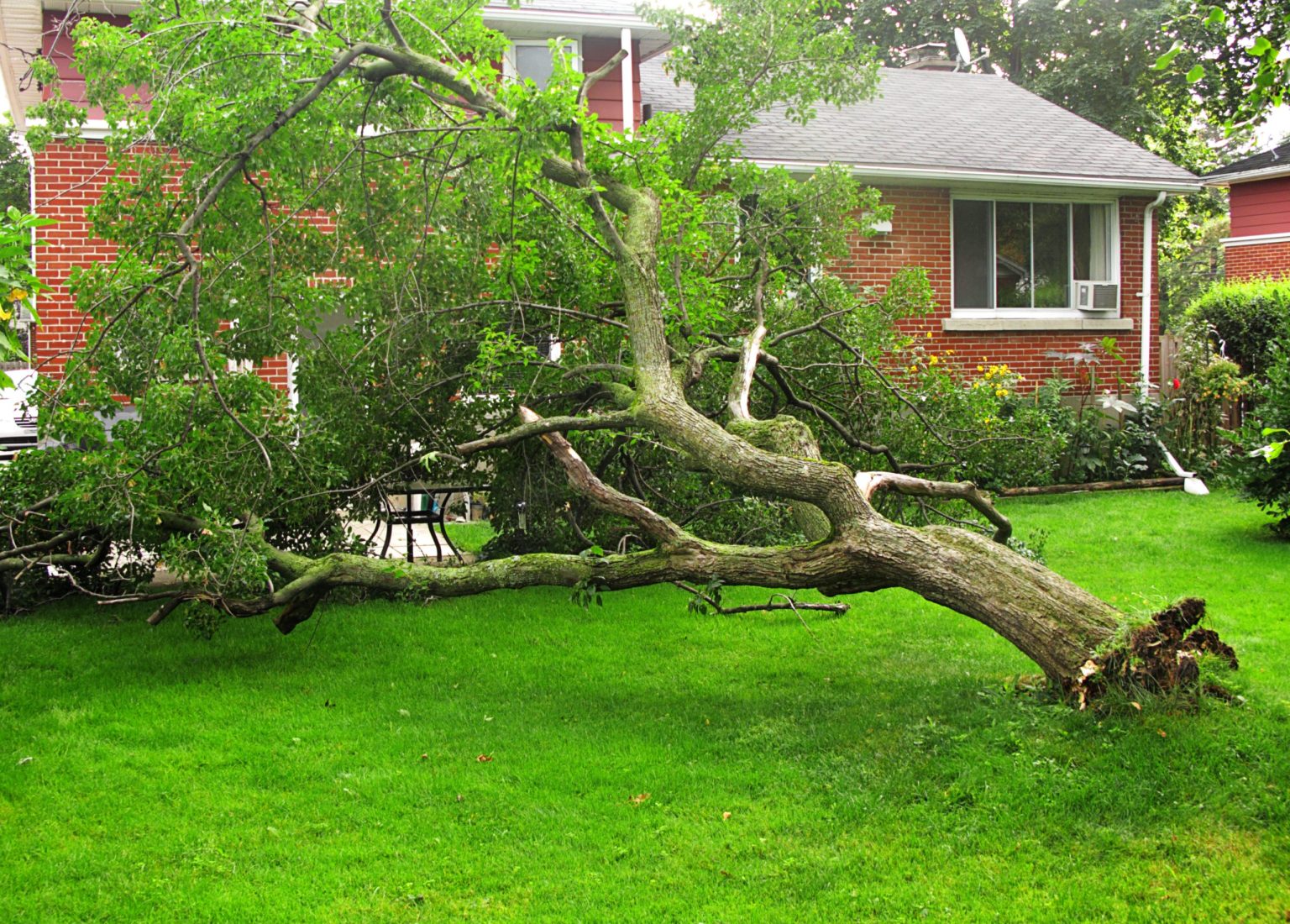

Home / Blog / Home Insurance / Does Homeowners Insurance Cover Fallen Trees?

If a tree falls in a forest and no one is around to hear it, your insurance company doesn’t care. But if a tree falls in your yard and damages your home, then your insurance company does care, regardless of whether or not it makes a sound.
If a tree falls on your property, you’ll want to know whether insurance will pay to remove it and if the damage from it is covered by your homeowners insurance. While the answer isn’t always black and white, we’ll go through your coverage here.Free Home Insurance Comparison - Save up to 30%
No junk mail. No spam calls. Free quotes.
No Signup required
Because there are a variety of different causes behind falling trees, there’s also a variety of answers to this question. Insurance policies have specific terms and conditions unique to each plan.
Generally speaking, homeowners insurance will cover any damage caused by (and sometimes the clean-up cost of) a fallen tree. Standard homeowner’s insurance typically has a list of covered perils that you’re covered for.
Here are some commonly covered perils that are also common causes of falling trees:
For the last three items, these perils are only covered if the falling tree damages a structure on your property. So, if the tree falls away from all structures without damaging any of them, then all clean-up costs are your responsibility.
The other perils are covered for damage and tree removal regardless of whether a structure on your property was damaged or not.
In short, whether your insurance policy covers a falling tree depends on:
If you are covered for falling tree damage and/or cleanup, then your coverage will be subject to standard limits and deductibles. Typically, tree-related damage is insured at 5% of the dwelling coverage. This coverage is still subject to limits, which will vary depending on each policy. However, they tend to be between $500 and $1,000.
Free Home Insurance Comparison - Save up to 30%
No junk mail. No spam calls. Free quotes.
No Signup required
When a tree falls in your yard, your first priority should be safety. After ensuring everyone in your home is safe and in an appropriate shelter, calling your insurance company to discuss the cost of repairs should be next on your to-do list.
It’s common for a neighbour’s tree to fall and cause damage to your property. Even though it’s not your tree, you are the one who needs to contact your insurance provider since it’s your property that is damaged. Your neighbour is not insured for your property.
There is one exception, however. If the insurance company finds in their investigation that the neighbour was negligent in caring for the tree, then their home liability insurance will be responsible.
The same is true for your own trees as well. So, if your tree damages your neighbour’s property and you are found to be negligible, then your liability insurance must be used. What’s more is that if found to be negligible for trees that damage your own property, you do not receive any coverage.
Free Home Insurance Comparison - Save up to 30%
No junk mail. No spam calls. Free quotes.
No Signup required
Being careful and taking preventative measures are the best way to avoid falling tree damage and pesky insurance claims. Understanding your policy and what’s covered will also help you in the event a tree falls and causes damage, so you’ll know what you’re covered for and how to get compensated.
Lauren Lewthwaite Lauren Lewthwaite has been freelance writing for almost five years writing content that ranges from health to insurance and everything in between. Lauren is also a trained translator in French and English and is a dog-mom to an adorable Australian Shepherd.